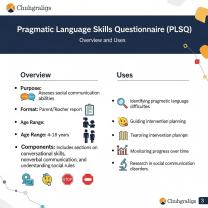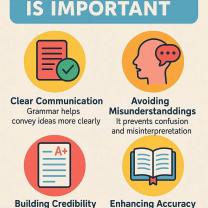Do you need a degree to become a web designer?
No, you don't necessarily need a degree to become a web designer. Web design is a field where skills and experience often carry significant weight, and many successful web designers have built their careers through self-directed learning, online courses, and practical experience. Here are some considerations regarding the need for a degree in web design:
1. Skill-Based Field:
- Web design is primarily a skill-based profession. Employers and clients are often more interested in the actual skills you possess, such as proficiency in design tools (e.g., Adobe Creative Suite), coding languages (HTML, CSS, JavaScript), and understanding of user experience (UX) principles.
2. Portfolio and Projects:
- Building a strong portfolio showcasing your design projects, websites you've created, and demonstrating your abilities is often more critical than having a degree. Clients and employers often want to see tangible evidence of your skills and style.
3. Self-Directed Learning:
- Many successful web designers are self-taught. There are abundant online resources, tutorials, and courses that can help you learn web design at your own pace. Platforms like Codecademy, Udemy, and freeCodeCamp offer courses in web development and design.
4. Bootcamps and Short Courses:
- If you prefer a more structured learning experience, coding bootcamps and short courses specifically focused on web design are available. These programs often provide hands-on experience and practical skills in a condensed timeframe.
5. Networking and Experience:
- Networking and gaining real-world experience through internships, freelance projects, or volunteer work can be as important as formal education. Connecting with professionals in the industry and getting involved in web design communities can open doors to opportunities.
6. Cost Considerations:
- Pursuing a formal degree can be expensive and time-consuming. If you're looking for a more cost-effective and efficient path, self-directed learning or shorter, targeted courses may be a viable option.
7. Industry Recognition:
- In the tech and creative industries, a strong portfolio and relevant experience often carry more weight than degrees. Employers may prioritize what you can do over your formal educational credentials.
8. Changing Landscape:
- The tech industry evolves rapidly, and traditional educational programs may not always keep pace with the latest tools and trends. Continuous learning and staying updated on industry developments are crucial, regardless of your educational background.
9. Entrepreneurial Opportunities:
- If you plan to work as a freelance web designer or start your own business, your skills, reputation, and ability to deliver high-quality work will be more important than a degree.
While a degree in web design or a related field can provide a structured learning path and may be beneficial in certain situations, it's not a strict requirement for a successful career in web design. Ultimately, employers and clients value your ability to create effective and visually appealing websites and applications. As the field is dynamic, being adaptable, continuously learning, and building a strong portfolio are key factors for success.
Is a degree necessary to pursue a career as a web designer?
No, a degree is not strictly necessary to pursue a career as a web designer. The web design field is quite flexible and values talent and skills over formal education. Many successful web designers have honed their skills through alternative pathways like self-learning, bootcamps, online courses, or on-the-job experience.
However, obtaining a degree in web design or a related field, like graphic design or computer science, can offer several advantages:
- Strong foundation: Degree programs provide a structured learning environment with comprehensive courses covering web design principles, coding languages, visual design concepts, and user experience (UX) principles. This gives you a solid foundation and prepares you for diverse projects.
- Credibility and recognition: A degree can provide an initial credential and boost your resume, making you a more attractive candidate to potential employers, especially for larger companies or established agencies.
- Networking opportunities: Universities offer access to professional networks, faculty mentors, and career fairs, connecting you with industry professionals and potential employers.
- Advanced skillset and specialization: Some degree programs offer deeper dives into specific areas like animation, mobile design, or UX research, allowing you to develop specialized skills and expertise.
Ultimately, the decision of whether to pursue a degree depends on your individual goals, learning style, financial situation, and desired career path. Here's a breakdown of potential advantages and disadvantages to consider:
With a Degree:
Advantages:
- Strong foundation
- Credibility and recognition
- Networking opportunities
- Advanced skillset and specialization
Disadvantages:
- Time and cost commitment
- General curriculum might not cater to specific interests
- Not strictly necessary for success
Without a Degree:
Advantages:
- Faster entry into the workforce
- Flexibility and opportunity to tailor learning to specific interests
- Lower cost and no student loans
- Focus on practical skills and hands-on experience
Disadvantages:
- May need to work harder to build credibility and establish your skills
- Potentially higher competition for entry-level jobs
- May lack comprehensive theoretical understanding
Regardless of your educational path, building a strong portfolio showcasing your work is crucial for success in web design. Start early by creating personal projects, contributing to open-source projects, or freelancing for small clients. This practical experience will demonstrate your skills and passion to potential employers.
Remember, there's no single "right" way to become a web designer. Choose the path that best aligns with your learning style, goals, and resources, and focus on continuously developing your skills and building a solid portfolio. This will ultimately pave the way for a successful career in the exciting world of web design!
I hope this information helps you make an informed decision about your web design journey!












